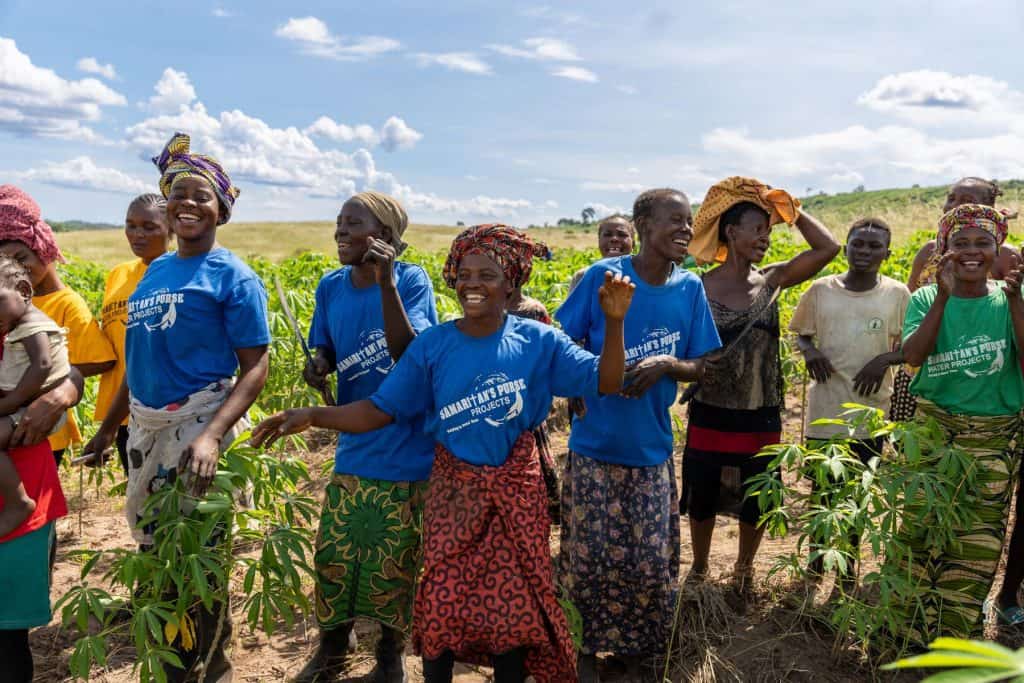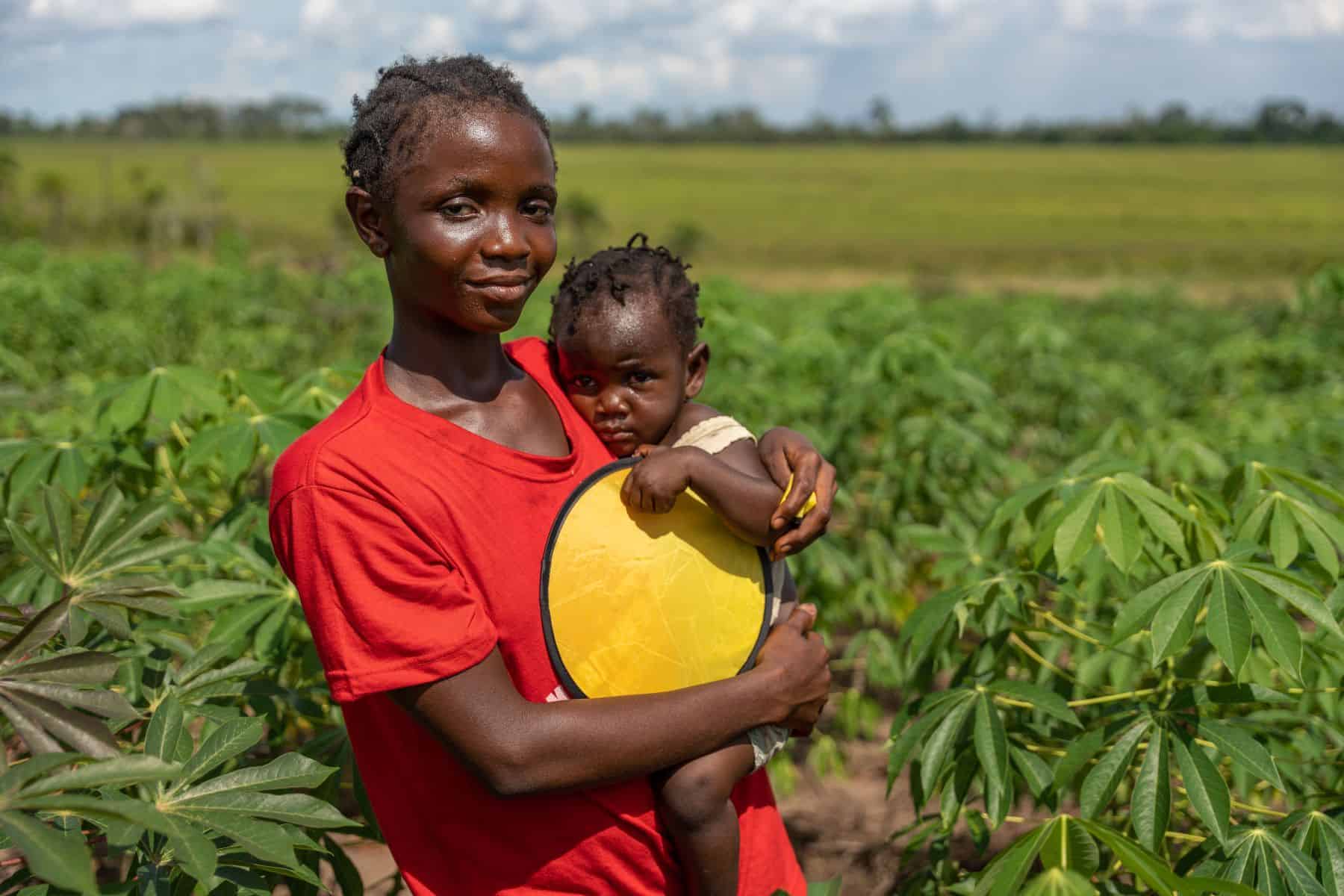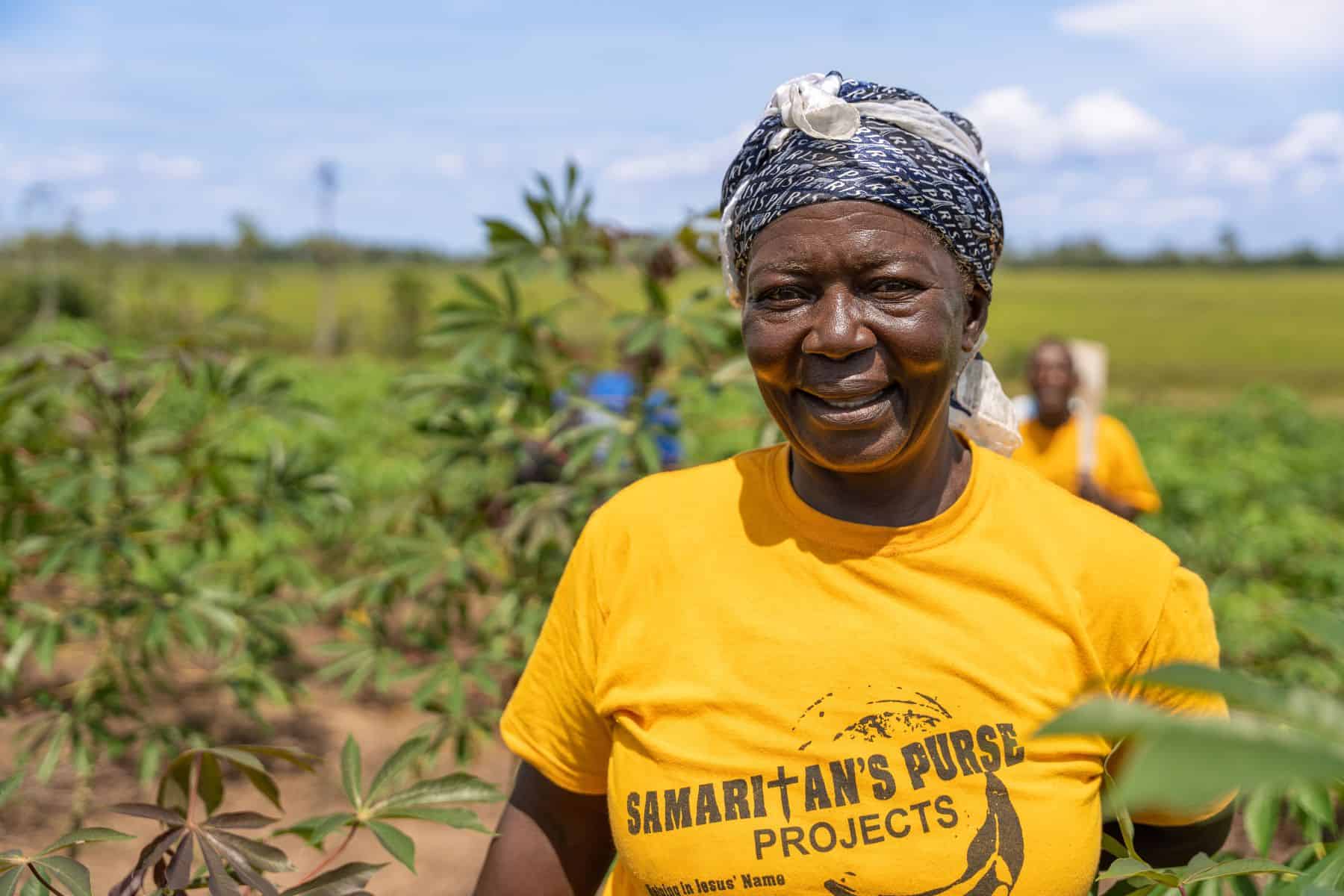Elizae’s Song
Abundant Crops and God’s Goodness in the Congo
The Democratic Republic of the Congo (DRC) is a land rich in natural life, from rolling grasslands to lush jungles and the mighty Congo River at its heart. But life can be agonizingly difficult for the people who live there.
Many of its 95 million inhabitants survive day to day. What they earn, collect, or cultivate each day is what they eat each night. There is no room for error. Just one bad day—a strike of unseasonable weather, a jump in food prices, or a bout of sickness—can mean desperation. It’s one of the many reasons the DRC is at the forefront of a growing global hunger crisis, and it’s also the world Elizae lives in every day as she raises her four children in rural DRC.
Scraping a living from the land is a struggle for Elizae and her husband. They work hard, but their crops don’t produce enough to sustain their family. “Life is very difficult getting food or even having money to send my children to school. We are a moneyless people,” she said.
“I LOVE TO SING THE GOOD THINGS GOD HAS DONE.” – ELIZAE, CONGO
Yet, today, as Elizae works in a new banana field near her home, a smile breaks across her face, and a song rises from her lips: “Give thanks to God for all the things He is doing,” she sings. “He is a very good God when we are in trouble. He is a very good God always.”
Elizae sings because of God’s provision for her through an agricultural project made possible by partners like you. “I love to sing the good things God has done,” she beamed.

SONG OF HOPE: ELIZAE’S VILLAGE SINGS IN GRATEFULNESS TO GOD IN ONE OF THEIR NEW CASSAVA FIELDS.
The project began with a Samaritan’s Purse team starting a farmer field school in the village. “Through the farmer field school, we regularly gather with the community to talk about how their crops are doing and teach them new techniques,” said Flavian, one of our local agronomists.
By providing new tools and seeds, the team helped the community prepare five new hectares of banana trees and legumes. A short walk away, another field also brims with cassava plants and more legumes.
The big difference is these fields are being grown with natural, sustainable techniques to help them consistently produce abundant crops and reduce hunger and malnutrition.
“We are teaching them soil conservation,” Flavian said. “For example, we taught the community to plant legumes with banana trees because they provide more food and income and help with weed control, natural fertilizing, erosion prevention, and shading the soil from the sun.”
Other techniques they teach include rotating the crops to rest the land and not using fire to clear vegetation, all of which are based in preserving and working with God’s creation, which opens doors to point to God, the Creator. The team also works with a local evangelist to show The JESUS Film and share the Gospel in these communities. “We are praying that God will help many people know Jesus,” said one of the local pastors.
Elizae knows these blessings are in Jesus’ Name. “My heart is grateful to God,” she said. “When it’s time to harvest, I will be able to get food for my family and income for school.”
Adelle, a young mom working in the field near Elizae, also sees the growing crops as God’s provision for her family. Having endured a difficult childhood herself, she has worried about her 2-year-old daughter, Wivette, who already shows signs of stunting from malnutrition.
“I came to this village to look for ways to survive,” Adelle said. “This project makes it possible to plant good crops. It will help my family for the future.”
Elizae agrees, and as she walks through the field at the end of the day, she closes with one final thought for those around her. “My prayer is to ask God to show His love to all people,” she said. “I want all people to experience the love of God, join in the blessing from this project, and realize God is good.
“He is a very good God always.”




